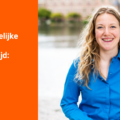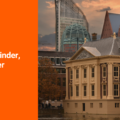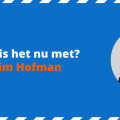
Summer is over, schools have started. And the classroom is the place where all subjects and people in society come together. Companies and interest groups know that too.
Many organizations therefore develop teaching packages for primary and secondary schools so that children and young people can learn more about a subject. Because how do you actually discuss wars, climate change, digitalization, sexuality and other important current topics in the classroom? Teaching packages can help with that, right?
To a certain extent. In the Netherlands, thanks to the freedom of education, schools are allowed to determine for themselves how lessons are designed and which materials they use, as long as they can justify this choice to the inspectorate. However, hundreds of lesson packages are offered to teachers and school leaders each year. Due to the overload of supply, teachers and school leaders therefore avoid the lesson packages as much as possible.
In addition, some teaching packages were heavily criticized because they put the interests of the creator too much first. For example, Albert Heijn's teaching packages were criticized because they encouraged children to go to Albert Heijn. And Stichting Reclame Code recently reprimanded Greenpeace because the teaching package was actually advertising.
It is only logical that conditions are set for sponsoring companies in lesson packages. In addition, one must also ask what the purpose of such a lesson package is: do you want to teach children something? Or are you trying to advertise in a roundabout way?
Reint Jan Renes mentions in Fidelity an 'education code committee' as a solution to be able to choose the right one in the maze of teaching packages. They can look at the offer and assess whether the teaching material is about facts and whether it starts an interesting discussion. However, there is also a call from the field for less regulation. A good role could be reserved here for the Expertise Center Citizenship, the PO-Raad and the VO-raad.
In addition, the line between commercial and 'we have a social role as an organization to teach children something' is thin. An open day to see how a supermarket, a flower grower or an environmental activist works can also be very interesting for young people. Teaching packages from those same organizations with large logos on them are less interesting for education and also less sincere.
Illustration by Frank Mineur.





